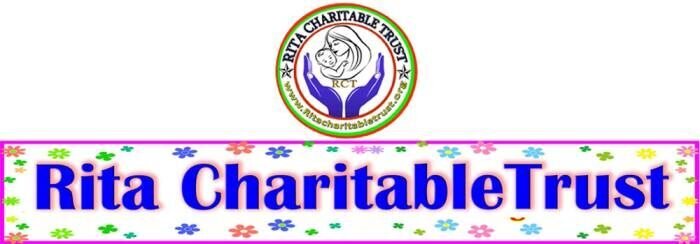Script writer (1 years diploma)
Script writer click here
Brief Job Description: Individuals at this job need to write full length scripts that
are production-ready. Note: In the Indian film industry, the script is often
constructed as a sum of 3 elements: Story, Screenplay and Dialogue and three
different individuals usually write these. However, ideally the entire script should
be written by 1 writer (or at least the screenplay and dialogue)
Personal Attributes: This job requires the individual to be a storyteller with a
developed sense of dramaturgy including the ability to conceptualize the plot,
structure it into a narrative with multi-dimensional, empathetic and credible
characters. The individual must be well-versed with script-writing elements,

principles, norms, guidelines and techniques to be able to develop a full-length
script that is production ready. A sense of the Indian story-telling ethos is
desirable.
Description
Budget Budget is an estimate of the total cost of production that may include a
break-up of cost components
Continuity Continuity represents the seamless transition from one shot to another
Copyright Laws A legal framework linked to intellectual property and the rights given to
creators of original products/ concepts
Screenplay Screenplay is the script coupled with key characteristics of the scene and
directions for acting
Script Script is a structured narrative of a story
Sector Sector is a conglomeration of different business operations having similar
businesses and interests. It may also be defined as a distinct subset of the
economy whose components share similar characteristics and interests.
Sub-sector Sub-sector is derived from a further breakdown based on the
characteristics and interests of its components.
Target Audience Group of people at who content/ adverting is aimed. A target audience is
typically defined by age, gender, economic classification, geography and
any other relevant parameters
Vertical Vertical may exist within a sub-sector representing different domain areas
or the client industries served by the industry.
Occupation Occupation is a set of job roles, which perform similar/related set of
functions in an industry
Function Function is an activity necessary for achieving the key purpose of the
sector, occupation, or area of work, which can be carried out by a person
or a group of persons. Functions are identified through functional analysis
and form the basis of OS.
Sub-functions Sub-functions are sub-activities essential to fulfill the achieving the
objectives of the function.
Job role Job role defines a unique set of functions that together form a unique
employment opportunity in an organization.
Occupational Standards
(OS)
OS specify the standards of performance an individual must achieve when
carrying out a function in the workplace, together with the knowledge and
understanding they need to meet that standard consistently. Occupational
Standards are applicable both in the Indian
and global contexts.
Performance Criteria Performance Criteria are statements that together specify the standard of
performance required when carrying out a task
National Occupational
Standards (NOS)

NOS are Occupational Standards which apply uniquely in the Indian
context.
Qualifications Pack
Code
Qualifications Pack Code is a unique reference code that identifies a
qualifications pack.
Qualifications Pack(QP) Qualifications Pack comprises the set of OS, together with the educational,
training and other criteria required to perform a job role. A Qualification
Pack is assigned a unique qualification pack code.
Unit Code Unit Code is a unique identifier for an Occupational Standard, which is
denoted by an ‘N’.
Unit Title Unit Title gives a clear overall statement about what the incumbent should
be able to do.
Description Description gives a short summary of the unit content. This would be
helpful to anyone searching on a database to verify that this is the
appropriate OS they are looking for.
Qualifications Pack For Script-writer
Scope Scope is the set of statements specifying the range of variables that an
individual may have to deal with in carrying out the function which have
a critical impact on the quality of performance required.
Knowledge and
Understanding
Knowledge and Understanding are statements which together specify the
technical, generic, professional and organizational specific knowledge that
an individual needs in order to perform to the requiredstandard.
Organizational Context Organizational Context includes the way the organization is structured and
how it operates, including the extent of operative knowledge Managers
have of their relevant areas of responsibility.
Technical Knowledge Technical Knowledge is the specific knowledge needed to accomplish
Specific designated responsibilities.
Core Skills/Generic
Skills
Core Skills or Generic Skills are a group of skills that are key to learning and
working in today’s world. These skills are typically needed in any work
environment. In the context of the OS, these includes Communication
related skills that are applicable to most job roles.
Description
NOS National Occupational Standard(s)
QP Qualifications Pack
NSQF National Skill Qualifications Framework
NVEQF National Vocational Education Qualifications Framework
NVQF National Vocational Qualifications Framework
Understand and detail the concept
Description This OS unit is about understanding and detailing the concept
Scope This unit/task covers the following:
Understanding the concept
Detailing out the concept
Note:
Concepts may be developed by the individual him/herself or communicated
by Directors/Producers, production houses, clients etc. Therefore,
understanding of the concept may be an internal or external process.
Detailing out the concept is likely to be a requirement for Scriptwriters, but
may be an informal process/optional for Script Editors or Script Researchers.
Performance Criteria (PC) w.r.t. the Scope
Element Performance Criteria
Understanding the
concept
To be competent, the user/individual on the job must be able to:
PC1. understand the artistic and communication goals of the concept, which may
be self-created, provided in a brief, or arrived at via discussions with relevant
personnel (Director, Executive Producer etc.)

PC2. be aware of the intended medium (e.g.: feature film, short film, serialized tv
series, miniseries, documentary), and evaluate how this affects viewer
engagement with the concept
PC3. be aware of the intended target audience, and evaluate how this affects the
concept (eg: language, pacing, maturity of themes etc)
PC4. be aware of any relevant cultural, social or political issues that need to be
taken into account
PC5. identify, research and understand key elements of the concept, including:
premise
setting
genre
central themes
primary mood/tone
broad character arcs
major narrative/plot points
structure
light and sound
Detailing out the
concept
PC6. outline key elements of the concept, along with additional notes, critiques
and development ideas in various formats, which may include:
taglines
loglines
pitches
one page synopsis
exposés
running diary/annotations
storyboards
Organizational
Context
(Knowledge of the
company /
organization and
its processes)
The user/individual on the job needs to know and understand:
KA1. the objective/outcomes of the production (e.g. audience engagement with
commercial success in view for feature films, public service, information
dissemination and spreading awareness etc.)
B. Technical
Knowledge
The user/individual on the job needs to know and understand:
KB1. how to assess concepts and their artistic and communication goals
KB2. how to extract and interpret relevant information regarding the concept’s
vision from concept briefs
KB3. how to discuss and understand relevant information regarding the concept’s
vision from relevant personnel (Director, Executive Producer etc.)
KB4. the effect of different mediums (e.g.: feature film, short film, serialized tv
series, miniseries, documentary) on viewer engagement
KB5. the culture and literary capacity of the target audience and how the concept
intends to engage them
KB6. the basic principles of story-telling and character psychology
KB7. elements of the concept, including premise, setting, genre, central themes,
mood, tone, character arcs, narrative, structure etc.
KB8. the norms and practices of concepts and concept development followed by
different production houses
KB9. the basic principles of concept detailing, and how to use timing, pacing,
characterization and the teasing of compelling ideas effectively
KB10. how to specify details of a concept in various formats (e.g.: taglines, loglines,
pitches, synopsis, exposes etc.) and the different objectives of each

KB11. how to research and tap into the sources for procuring information/
background material that will enhance understanding of the concept
KB12. how to work on word processing software and scriptwriting, formatting software
like Final Draft, Movie Magic and Celtx
KB13. how to type in regional languages using Unicode
KB14. applicable copyright norms and intellectual property rights
Core Skills/
Generic Skills
Writing Skills
The user/individual on the job needs to know and understand how to:
SA1. how to specify a concept using taglines, loglines, synopsis, exposes,
storyboards and understand the differing purposes for each
SA2. detail out concepts complying with norms and guidelines specific to the
industry/genre/region/language/culture
SA3. use correct grammar, spelling, punctuation and phonetics for the language in
which the concept is being developed
Reading Skills
The user/individual on the job needs to know and understand how to:
SA4. research the profile and characteristics of the target audience, genre, region
and culture to better understand the concept’s objectives
SA5. read and understand any concept briefs, notes or other materials with
information on the concept
SA6. research key elements of the concept to improve understanding, as
appropriate
Oral Communication (Listening and Speaking skills)
The user/individual on the job needs to know and understand how to:
SA7. discuss the goals and creative vision of the concept with the Producer/
Director/ Client, as required
B. Professional Skills Plan and Organize
The user/individual on the job needs to know and understand how to:
SB1. ensure that understanding of the concept is at a sufficient level for further
tasks, and that this is achieved within timelines
Problem Solving
The user/individual on the job needs to know and understand how to:
SB2. identify any problems with successful execution of the task and resolve them
in consultation with the producer and director
Decision making
The user/individual on the job needs to know and understand how to:
SB3. make relevant decisions related to the area of work
Customer Centricity
The user/individual on the job needs to know and understand:
SB4. the consumption patterns and preferences of the target audience (end user/
viewer/ listener)
Analytical Thinking
The user/individual on the job needs to know and understand how to:
SB5. foresee technical issues that may arise during production/post-production of
the idea/concept and explore options to modify script/ resolve issues
proactively
Critical Thinking
The user/individual on the job needs to know and understand how to:
SB6. how to assess the suitability of production concepts/ scripts for the intended
target audience
Undertake research for scripts
Description This OS unit is about researching material that can be used as inputs for script-writing
Scope This unit/task covers the following:
Researching material that can be used as inputs for scriptwriting
• Productions could include animation, advertisements/commercials,
documentaries, feature films, short films, television series,theatre
• Genres could include action, children, comedy, crime, drama, family,
history, horror, romance, science fiction, teens, thriller
Performance Criteria (PC) w.r.t. the Scope
Element Performance Criteria
Researching material
that can be used as
inputs for
scriptwriting
To be competent, the user/individual on the job must be able to:
PC1. identify the research required by analyzing the concept, or by taking a clear
brief from relevant personnel (scriptwriter, script editor, Director, Producers)
PC2. understand the basics of scriptwriting, story structure, character creation to
be able to carry out appropriate research for the scriptwriting process
PC3. identify relevant sources of information, and conduct primary (interviews,
discussions) or secondary (reports, courses) research
PC4. liaise periodically with relevant personnel (scriptwriter, script editor, Director,
Producers) to provide updates on research and be made aware of
any other research requirements, as appropriate
Knowledge and Understanding (K)
A. Organizational
Context
(Knowledge of the
company /
organization and
its processes)
The user/individual on the job needs to know and understand:
KA1. the script-writers requirements about the nature and scope of research
KA2. the genre and timelines for story delivery and budget within which the script
would need to be delivered
B. Technical
Knowledge
The user/individual on the job needs to know and understand:
KB1. script-writing norms and guidelines including style, format, structure and length
applicable to different industries, audiences, genres, regions, language and
cultures
KB2. the context of the script with reference to other similar existing work
KB3. elements of the story outline including the story plot, structure, theme,
setting, character profiles, key turning points in the story
KB4. basic research methodology
KB5. how to work on word processing software and screenwriting, formatting
software like Final Draft, Movie Magic and Celtx
KB6. how to type in regional language using Unicode
KB7. narrative templates like the 3-act structure, plot point, Blake Snyder’s beat
sheet (save the cat) and hero’s journey
KB8. applicable copyright norms and intellectual property rights
KB9. the sources for procuring information/ background material and research
KB10. applicable health and safety guidelines
Core Skills/
Generic Skills
Writing Skills
The user/individual on the job needs to know and understand how to:
SA1. develop and draft appropriate research briefs to assist in the script writing
process
SA2. use correct grammar, spelling, punctuation and phonetics for the language in
which the script is being developed
Reading Skills
The user/individual on the job needs to know and understand how to:
SA3. conduct extensive research across a variety of print and media resources to
develop a range of possibilities for the script
SA4. research the profile and characteristics of the target audience, industry, genre,
region and culture
SA5. research and confirm factual information used for the storyline to ensure it is
accurate and supports the concept
Oral Communication (Listening and Speaking skills)
The user/individual on the job needs to know and understand how to:
SA6. understand the overall production concept and story concept from the
Director and Producer
SA7. present, discuss and solicit feedback on the story outlines from the Director
and Producer
B. Professional Skills Plan and Organize
The user/individual on the job needs to know and understand how to:
SB1. plan and prioritize work according to the requirements and agreed timelines
Problem Solving
The user/individual on the job needs to know and understand how to:
SB2. identify any problems with successful execution of the task and resolve them
in consultation with the producer and director
Analytical Thinking
The user/individual on the job needs to know and understand how to:
SB3. envision the impact of the script on the production budget, requirements and
process
Decision Making
The user/individual on the job needs to know and understand how to:
SB4. decide and Finalize the creative vision of the production depending on the
research done
Critical Thinking
The user/individual on the job needs to know and understand how to:
SB5. how to assess the suitability of production concepts/ scripts for the intended
target audience
Customer Centricity
The user/individual on the job needs to know and understand how to:
SB6. the consumption patterns and preferences of the target audience (end user/
viewer/ listener) depending on the genre of the script
Develop a full length script
Description This OS unit is about writing the complete script for a production according to
requirements and in a manner that facilitates production
Scope This unit/task covers the following:
Preparing or co-writing the script/screenplay/dialogue/lyrics for a range of
productions and genres
Productions could include animation, advertisements/commercials,
documentaries, feature films, short films, television series ,theatre
Genres could include action, children, comedy, crime, drama, family,
history, horror, romance, science fiction, teens, thriller
Note:
The script can either be written on speculation or brought to a production
house for approval, or it can be written under assignment from a production
house. For scriptwriting on assignment, a clear brief on the plot on which it is
based and the genre and style of the script needs to be established
beforehand
Each genre also has sub-genres
Performance Criteria (PC) w.r.t. the Scope
Element Performance Criteria
Preparing or cowriting the script/
screenplay/ dialogue/
lyrics for a range of
productions and
genres
To be competent, the user/individual on the job must be able to:
PC1. construct a complete story that is rooted in a central idea/premise, with
integrity between the plot and characters.
PC2. develop characters that are interesting, multi-dimensional and credible, with
motives that link them to the plot
PC3. develop the story into a complete script with a coherent structure within the
requisite timelines.
PC4. break the script into scenes with dialogues, visual elements, gestures and
actions that ensure story progression and audience engagement
PC5. prepare pitch presentations for pitching to the production house, if written
on speculation, as required
PC6. prepare pitch presentations for pitching it to producers, directors and/or the
cast, if written under assignment, as required
Knowledge and Understanding (K)
A. Organizational
Context
(Knowledge of the
company /
organization and
its processes)
The user/individual on the job needs to know and understand:
KA1. the target audience and the objective/outcomes of the production such as
audience engagement with commercial success in view for feature films,
public service, information dissemination and/or spreading awareness
KA2. the timelines and budget within which the script would need to be delivered
Technical
Knowledge
The user/individual on the job needs to know and understand:
KB1. the norms and practices of script-writing followed by different production
houses
KB2. the fundamental principles of story-telling and character psychology
KB3. the principles of action and dialogue writing, and how to use timing, pacing
and characterization effectively
KB4. the different genres of scripts and the entertaining elements therein
KB5. script formats and their styles, including script components like scene
headings, parenthesis, description, scene transitions, action, dialogue, light
and sound
KB6. elements of the script including the story premise, theme, plot, character
profiles, structure, scene design, dialogue and key turning points
KB7. the basics of dramaturgy that include the nature of conflict, how characters
and plots drive each other, escalating confrontation and a resolution
delivering dramatic satisfaction
KB8. Indian storytelling traditions, including an awareness of the two Indian myths,
the Ramayana and the Mahabharata. An understanding of the Rasa theory of
Bharata and its universal applicability is desirable
KB9. the ability and imagination to convert reality into storylines by drawing
inferences from sources such as news reports, interviews, real life characters
and events, existing fact-based information, observation and publications or
as per client brief
KB10. the culture and literary capacity of the audience and how to design narratives
that are meaningfully comprehensible to them
KB11. how to research and tap into the sources for procuring information/
background material that will enhance the dramatic merit of the script
KB12. how to work on word processing software and screenwriting, formatting
software like Final Draft, Movie Magic, Screenwriter and Celtx and how to use
computers and the internet efficiently
KB13. how to type in regional language using Unicode
KB14. the laws and roles relevant for screenwriters, like protecting copyrights,
contractual protocols, maintaining membership to the respective writers’
union and adhering to the rules and protocols for writers’ protection
KB15. applicable health and safety guidelines
Skills (S) (Optional)
A. Core Skills/
Generic Skills
Writing Skills
The user/individual on the job needs to know and understand how to:
SA1. how to write a script, treatment, story bible, one page synopsis, paragraph
summary and tag line, and understand the differing purposes for each
SA2. develop and draft the complete script complying with norms and guidelines
specific to the industry/genre/region/language/culture
SA3. use correct grammar, spelling, punctuation and phonetics for the language
in which the script is being developed
SA4. develop pitch presentations (covering key elements such as one line
summary, synopsis, characters) for the decision-makers i.e. Directors,
Producers and clients
SA5. be dynamic/flexible when modifying the script during production









